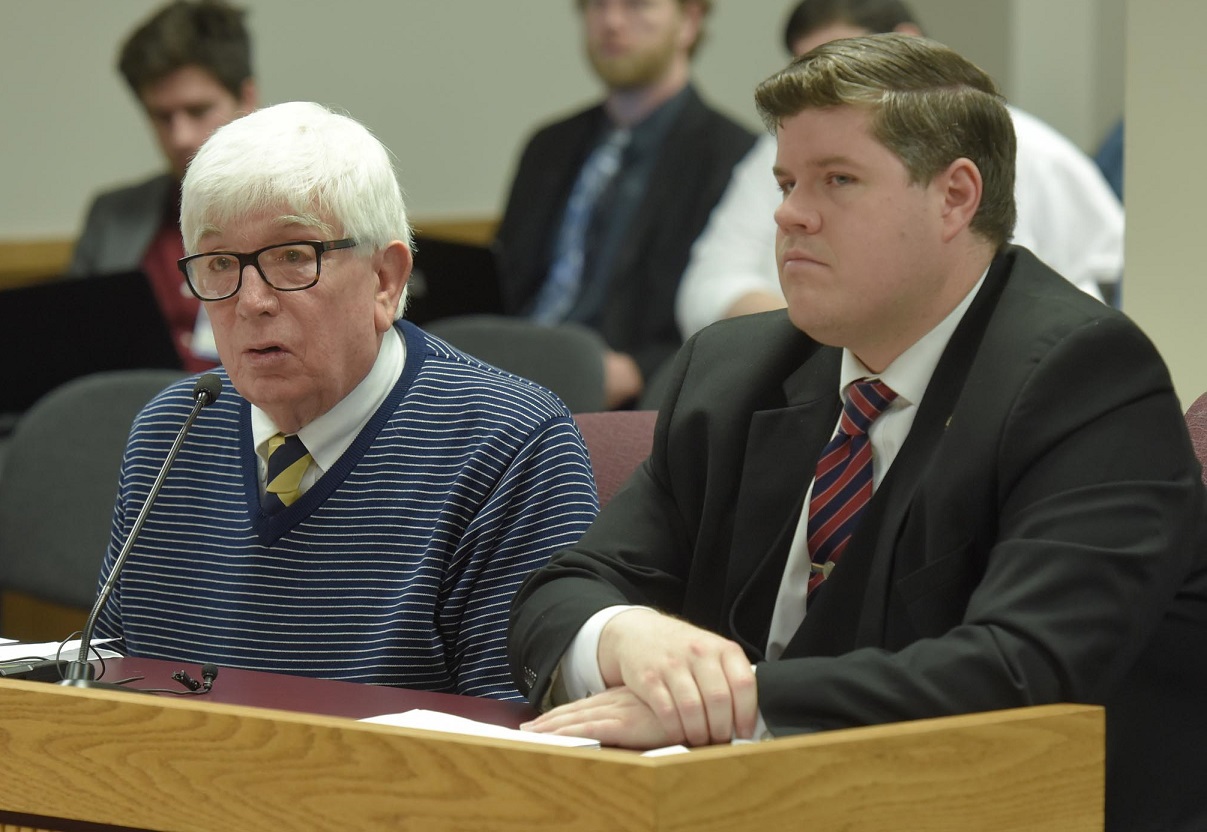The state legislature has voted to memorialize two law enforcement officers fatally shot in 1933 by naming sections of Interstate 70 for them.

Highway Patrol Sergeant Benjamin Booth was the first member of the Missouri State Highway Patrol to be killed in the line of duty. He and Boone County Sheriff Roger Isaac Wilson were killed by two men they had stopped at the intersection of Highways 40 and 63.
On June 14, 1933, Booth was on a day off when Wilson called him in to help set up a roadblock as part of an effort to catch two men who robbed a bank in Mexico earlier that day. The two men they stopped were not the robbers but were armed, and when their vehicle was stopped they shot the two law enforcement officers. Wilson, 43, died at the scene. Booth, 37, died on the way to a hospital.
Senate Bill 999 would designate I-70 in Columbia from Rangeline Street to Business Loop 70 the “Sergeant Benjamin Booth Memorial Highway,” and would make I-70 from Highway 63 to Rangeline the “Sheriff Roger I. Wilson Memorial Highway.” The House finalized passage of that bill last week, ahead of National Police Week.
It was sponsored by Columbia senator Caleb Rowden (R) and carried in the House by Hallsville Republican Cheri Toalson Reisch.

“These men were killed in cold blood in Boone County … and it is our duty to honor these men especially in light of law enforcement memorial month,” said Toalson Reisch.
Wilson is the grandfather of former Missouri Governor Roger Wilson, whose father was 15 when Sheriff Wilson was killed. He told House Communications the recognition will mean a lot to the Wilson and Booth families.
“I think the recognition on the highways will probably mean more to the families than anybody else but I think it’ll also mean something to our community, so I’m glad that this is taking place,” said the former governor.
Kelly Allen of Springfield, Illinois, is the granddaughter of Ben Booth’s widow. She says her grandmother and others often talked about the kind of man he was.
“He was an honest, good, working man, family man, and he was an honorable trooper,” said Allen. “I’m just really honored and thrilled. I know my mother and my grandmother would be so pleased that people still remember.”
Allen said when Booth was killed her grandmother struggled to raise the couple’s 7-year-old daughter and 8-year-old son.
Wilson said a lot has changed in law enforcement since his grandfather was the sheriff.
SB 999 has been sent to the governor to await his attention.
The murders of Sheriff Wilson and Sergeant Booth triggered a massive manhunt including the use of roadblocks and airplanes. Authorities eventually caught up to the two men responsible. One of them was later hung in one of the last state executions by hanging in Missouri. The other man, who testified against his partner, spent 12 years in state prison before being paroled. He moved to Iowa, married and had four children, and his sentence was eventually commuted.

